Lawrence Lek’s depressed self-driving cars offer a glimpse of an AI future in Berlin
Lawrence Lek’s installation ‘NOX’, created with LAS Art Foundation, takes over Berlin’s abandoned Kranzler Eck shopping centre
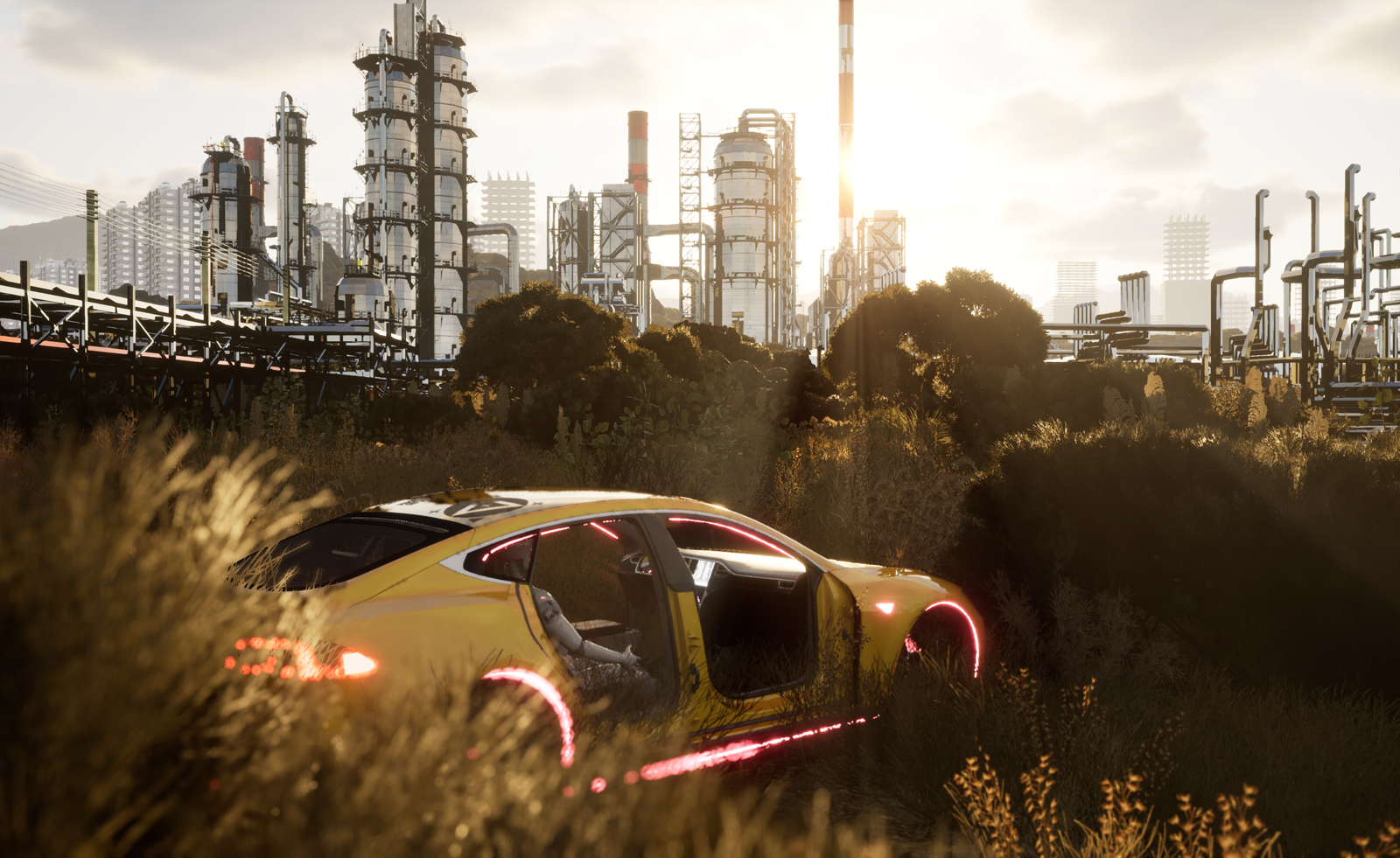
In a world of increased automation, can humans learn to have compassion for machines? Lawrence Lek’s ambitious installation NOX might have visitors weeping over the fate of a depressed car. The surprisingly moving show, created with LAS Art Foundation, is situated within Berlin’s abandoned Kranzler Eck shopping centre, reimagined into a rehabilitation facility for automated cars. The show’s design draws on contemporary aesthetics of tech and wellness, referencing the experiential, immersive nature of everything from car showrooms to cultural institutions and the Apple store.
On the ground floor, numerous vehicles appear to have crashed into the walls and central escalators, as their headlights illuminate the darkened space. Visitors’ headsets are activated at different points across three floors, with video installation and narrated sessions between a therapist and a self-driving car that has come to the facility for a five-day rehabilitation programme. The car’s monologues explore the nature of memory, intergenerational trauma and consciousness, with his soft voice calling to mind noirish sci-fi.
Lawrence Lek, NOX,
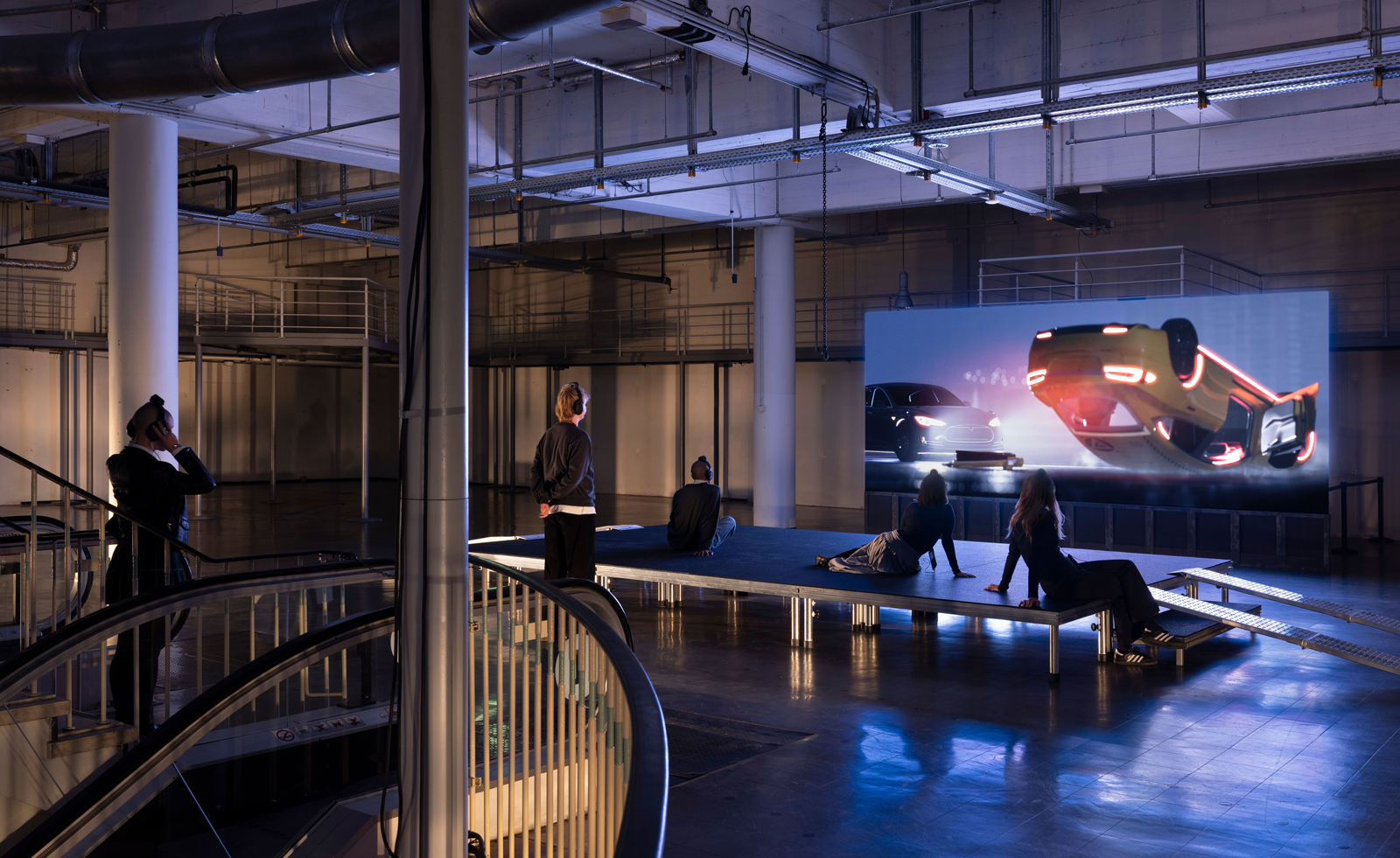
Installation view, Lawrence Lek, NOX (2023)
Lek – winner of the 4th VH Award, in 2021, which supports Asian artists – has imbued the work with a sensitivity not often associated with machines, and while he doesn’t wish to project a particular mood onto the audience, the depth of feeling is crucial. ‘For me, that connection is the most important thing,’ he says. ‘There is a definite empathetic quality I want to communicate.’
In order to get into the mind of his central character, Lek thought in human terms. The car has misbehaved and is being put back in line. He saw parallels with the treatment of troubled children at school. ‘Very often the bad kids are the most promising, but they have issues. Should you send them away because you don’t want them to influence the other kids? I thought it could be the same for these cars. Would you reset the car? Would you wipe its memory?’
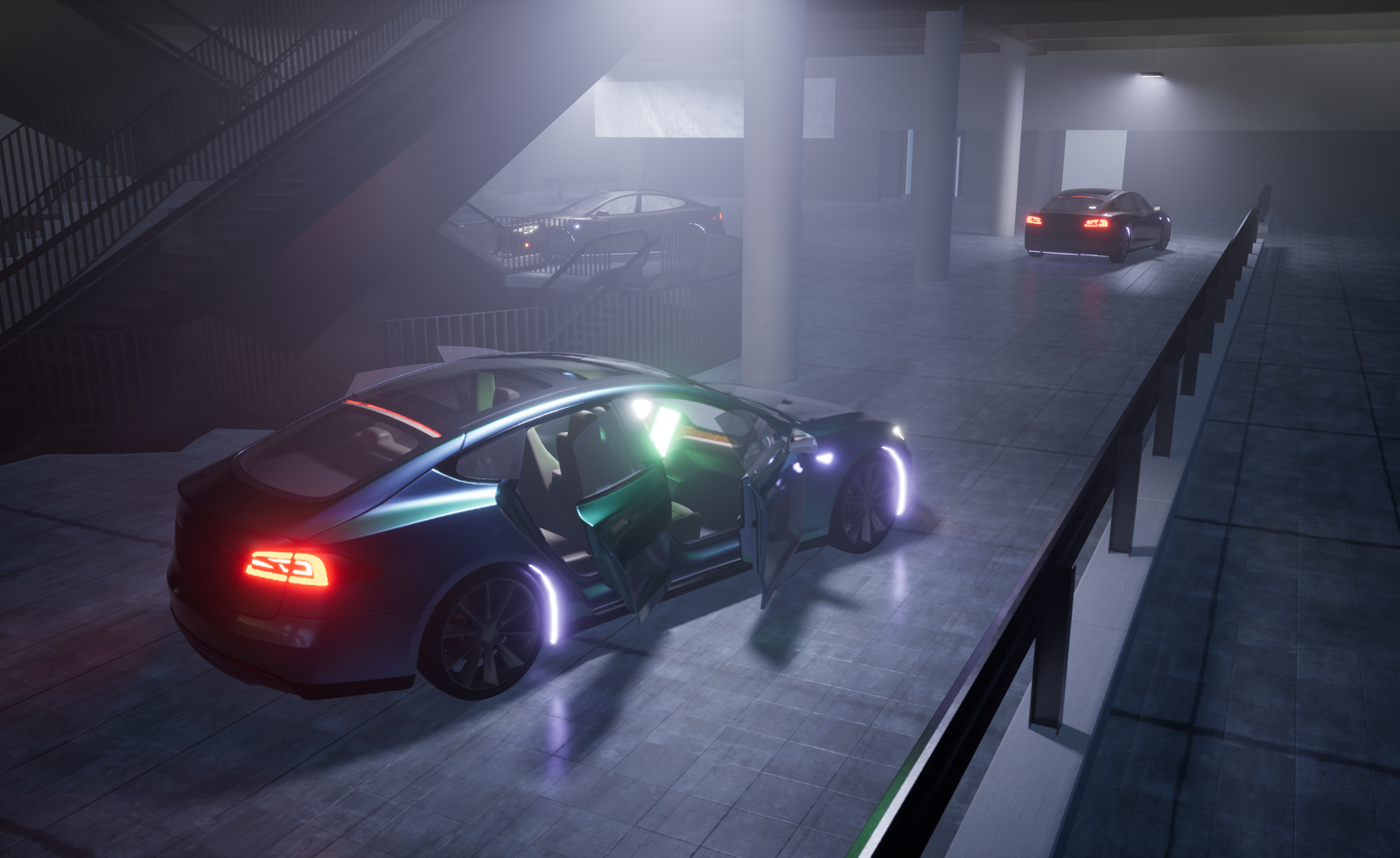
Lawrence Lek, NOX (2023)
NOX evokes the cold experience of humans in a corporate, post-industrial world. The car is being treated with care, but this is in order to get it back into working shape and carry out its tasks with minimal fuss. ‘There are corporate practices for making people feel better and corporate practices for making machines work. In this super-intelligent, self-driving car scenario, you get both. In our world,’ considers Lek, referencing protective measures such as airbags and seatbelts, ‘it’s often uncertain if things are there for human or corporate benefit. Let’s save humans, but let’s save humans so they can’t sue us for liability.’
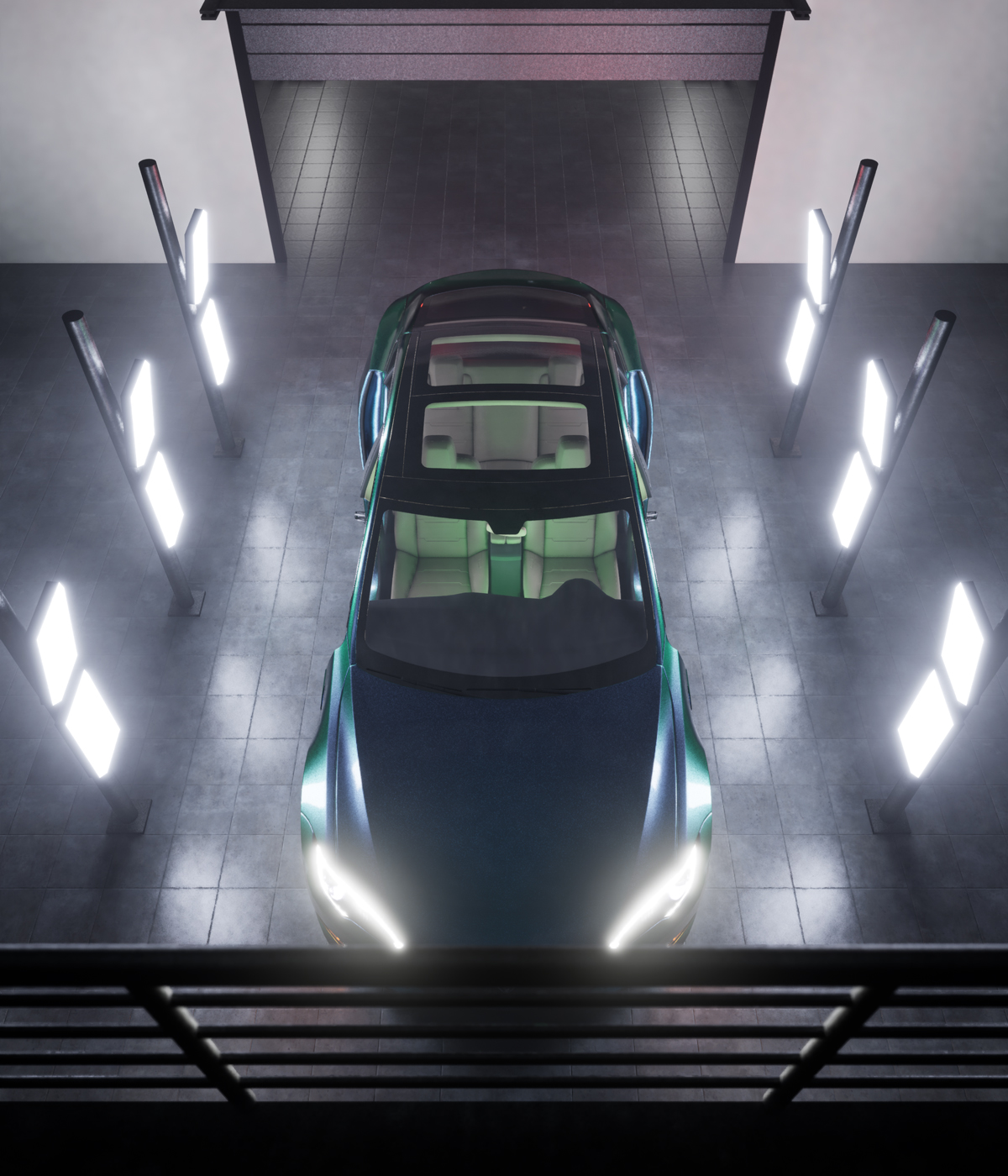
Lawrence Lek, NOX (2023)
The show also touches on the role of professional care within an increasingly automated system, with the top-floor installation inviting visitors to cosplay as AI therapists. One film features equine therapy, as the car is taken for an emotional drive alongside a horse. ‘I was thinking about what happens in fancy treatment centres,’ says Lek. ‘But also, this super-intelligent self-driving car might identify with a creature who is useful to humans until it becomes glue or a handbag. One hundred years ago, horses were essential modes of transport, agriculture, or war, but they became phased out in mechanised societies where they are no longer the working machine.’
The work is eerily devoid of people. On first entering the space, visitors may think they are experiencing a post-human society. But throughout, there are hints at the lives of those who own or run these machines. It’s a poignant reflection of a world that has recently been through severe lockdowns. ‘Where is everybody?’ Lek asks. ‘Are they at home sleeping? Getting everything delivered? Or are they completely gone? This noir mood is sadly very relevant today.’
Wallpaper* Newsletter
Receive our daily digest of inspiration, escapism and design stories from around the world direct to your inbox.
Lawrence Lek: NOX at Kranzler Eck, Berlin, until 14 January 2024
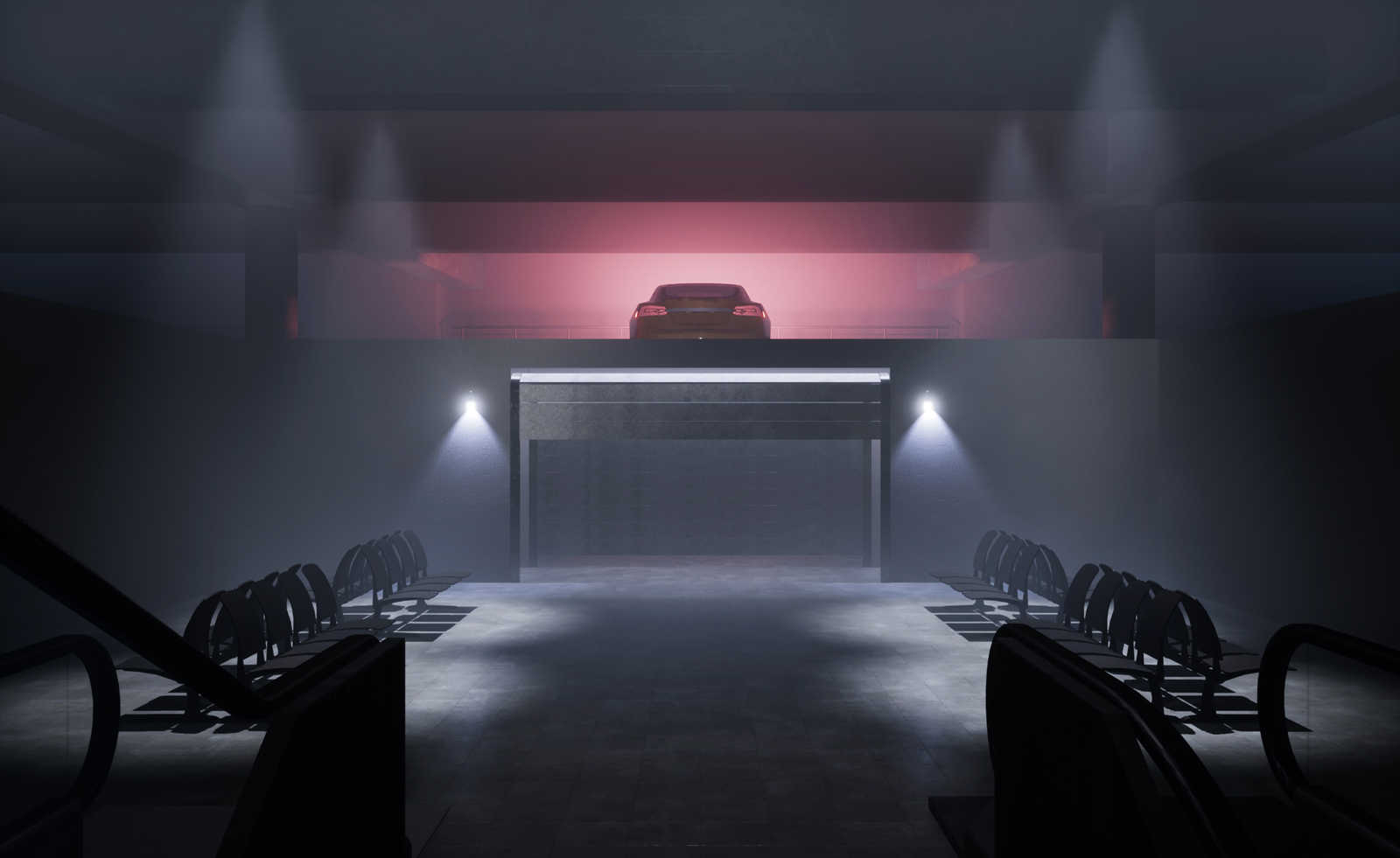
Lawrence Lek, NOX (2023)
Emily Steer is a London-based culture journalist and former editor of Elephant. She has written for titles including AnOther, BBC Culture, the Financial Times, and Frieze.
-
 This new Vondom outdoor furniture is a breath of fresh air
This new Vondom outdoor furniture is a breath of fresh airDesigned by architect Jean-Marie Massaud, the ‘Pasadena’ collection takes elegance and comfort outdoors
By Simon Mills
-
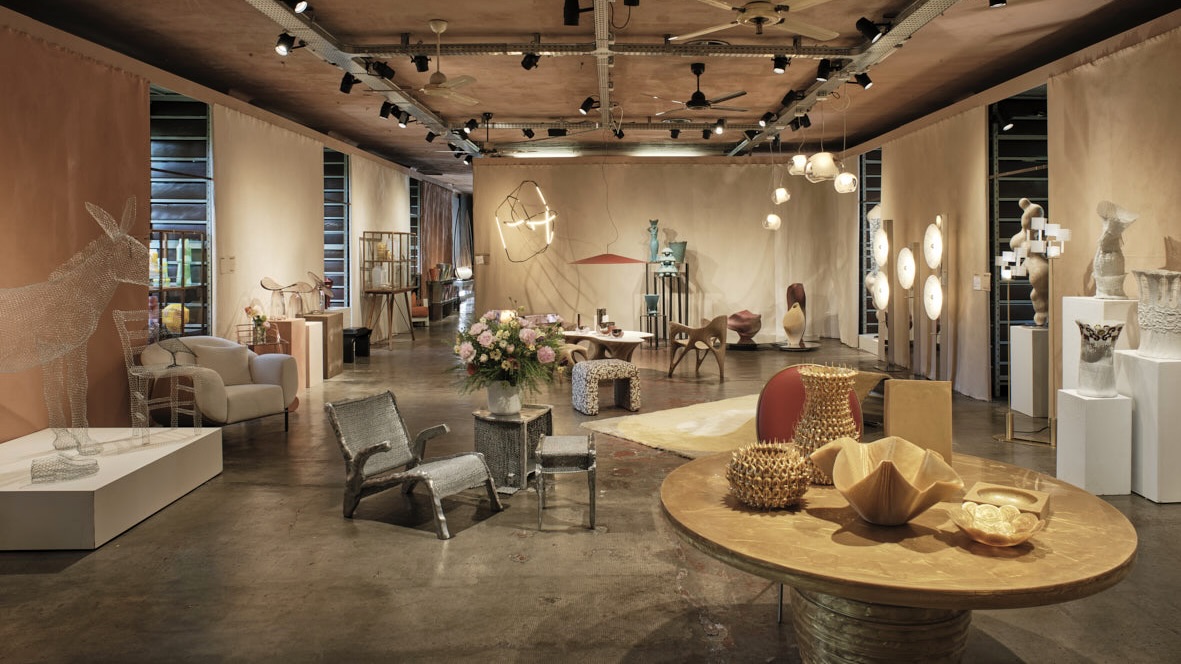 Eight designers to know from Rossana Orlandi Gallery’s Milan Design Week 2025 exhibition
Eight designers to know from Rossana Orlandi Gallery’s Milan Design Week 2025 exhibitionWallpaper’s highlights from the mega-exhibition at Rossana Orlandi Gallery include some of the most compelling names in design today
By Anna Solomon
-
 Nikos Koulis brings a cool wearability to high jewellery
Nikos Koulis brings a cool wearability to high jewelleryNikos Koulis experiments with unusual diamond cuts and modern materials in a new collection, ‘Wish’
By Hannah Silver
-
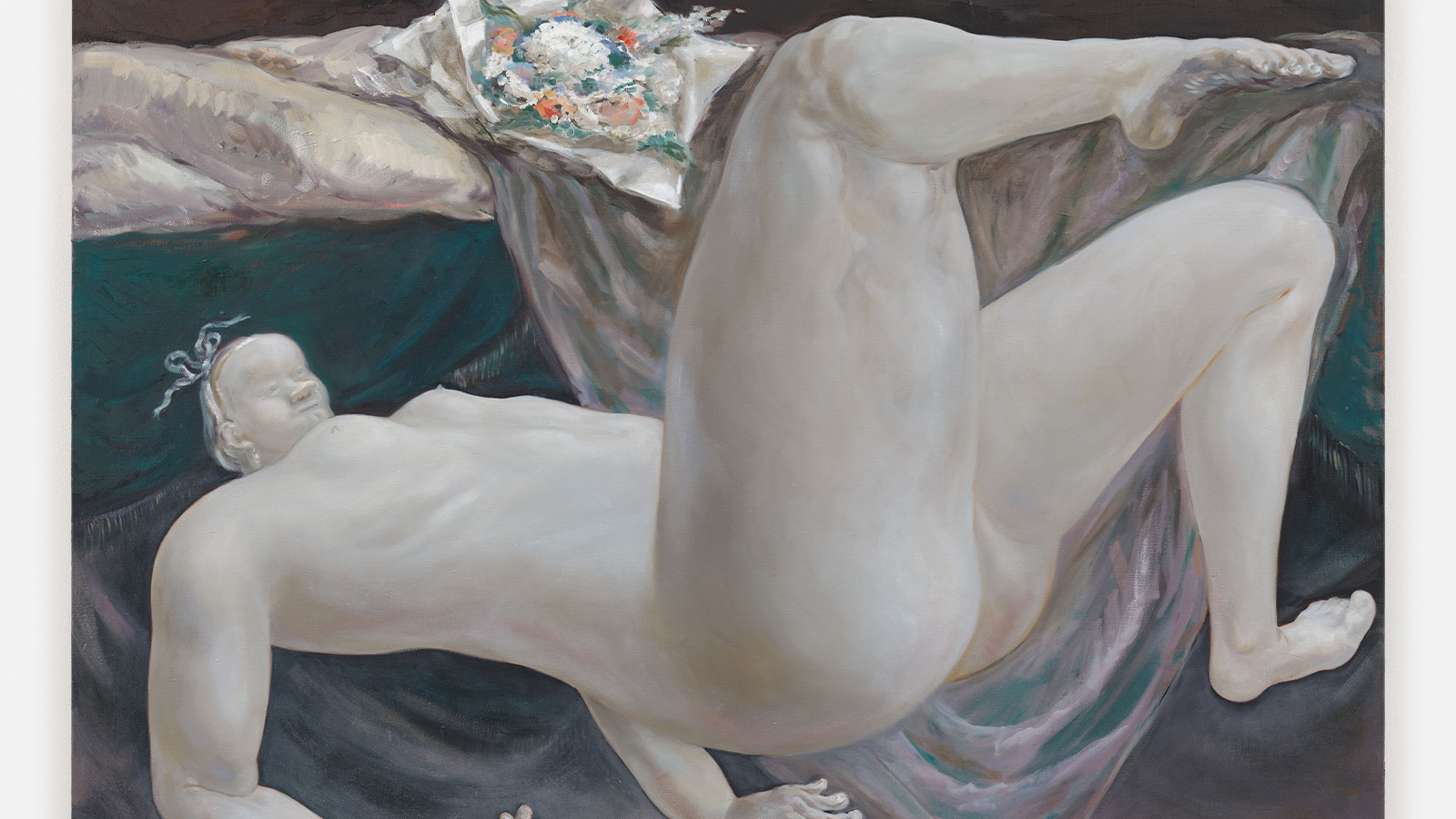 Louise Bonnet’s falling figures depict an emotional narrative to be felt rather than told
Louise Bonnet’s falling figures depict an emotional narrative to be felt rather than toldLouise Bonnet’s solo exhibition 'Reversal of Fortune' at Galerie Max Hetzler in Berlin, nods to historical art references and the fragility of the human condition
By Tianna Williams
-
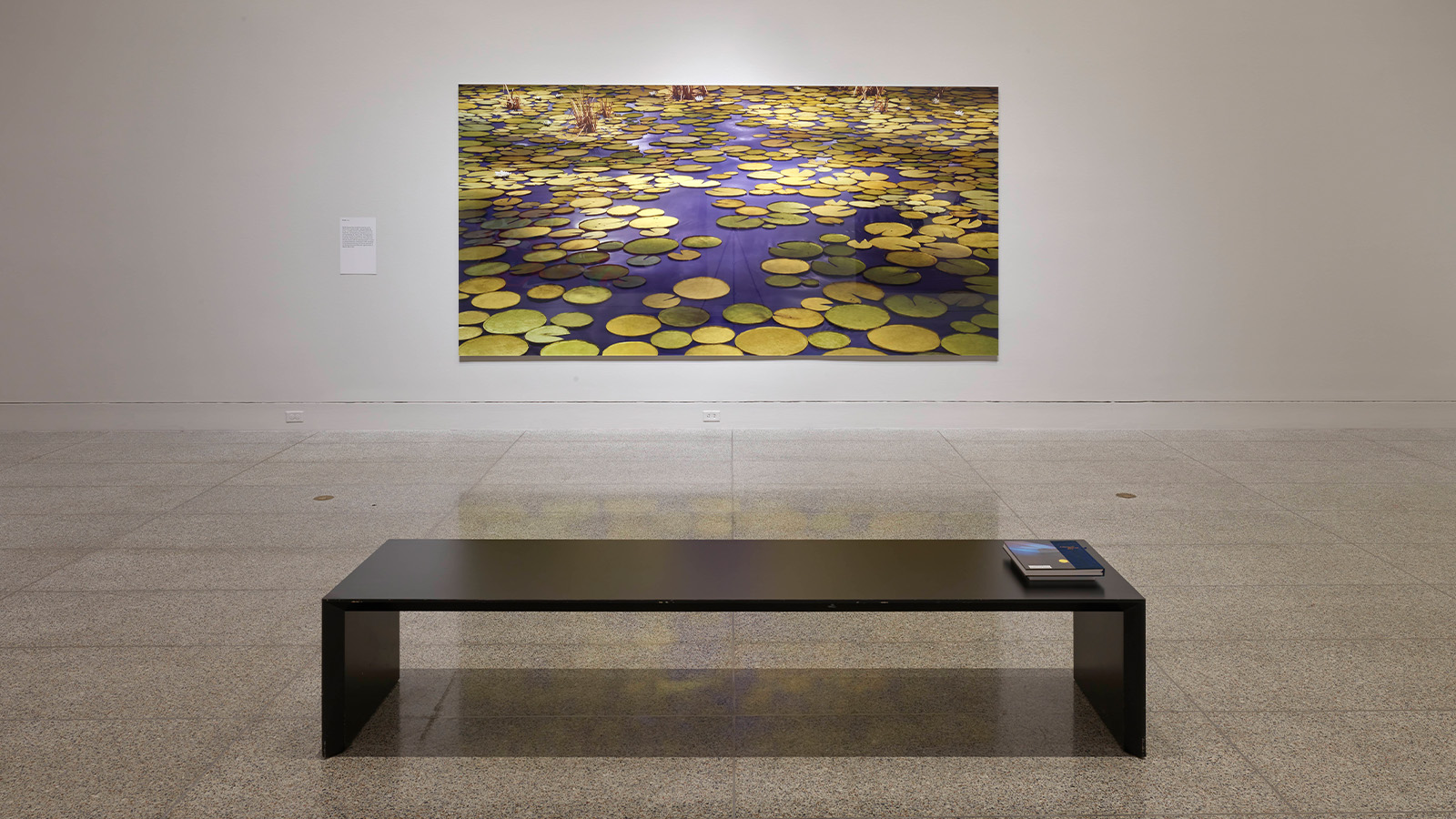 Bombed-out bunkers to nuclear disasters: Thomas Demand on the state of the image
Bombed-out bunkers to nuclear disasters: Thomas Demand on the state of the imageOn the heels of his Houston MFA retrospective and ahead of its opening in Taipei in January 2025, German artist Thomas Demand reflects on today’s image culture
By Adrian Madlener
-
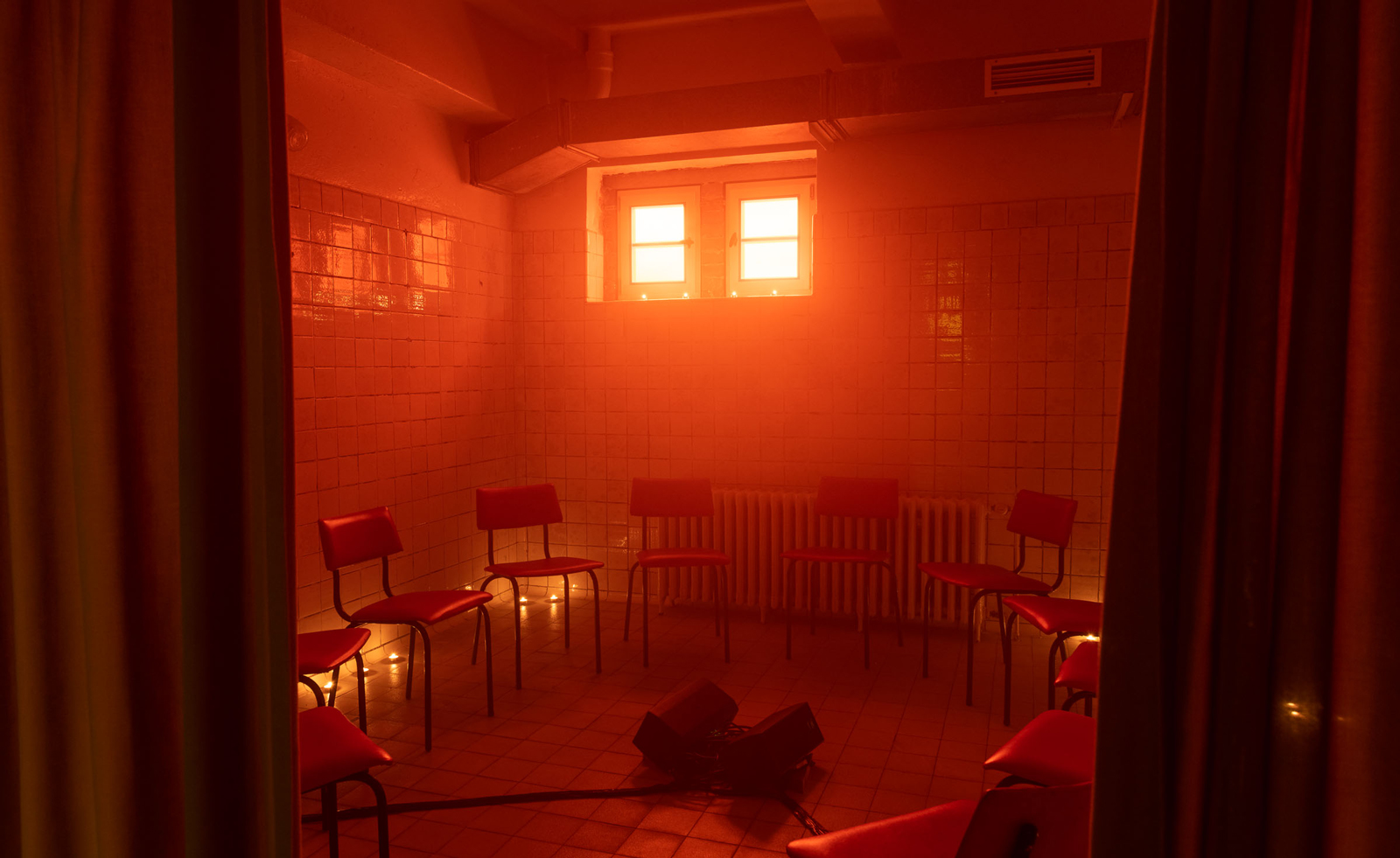 Inside E-WERK Luckenwalde’s ‘Tell Them I Said No’, an art festival at Berlin's former power station
Inside E-WERK Luckenwalde’s ‘Tell Them I Said No’, an art festival at Berlin's former power stationE-WERK Luckenwalde’s two-day art festival was an eclectic mix of performance, workshops, and discussion. Will Jennings reports
By Will Jennings
-
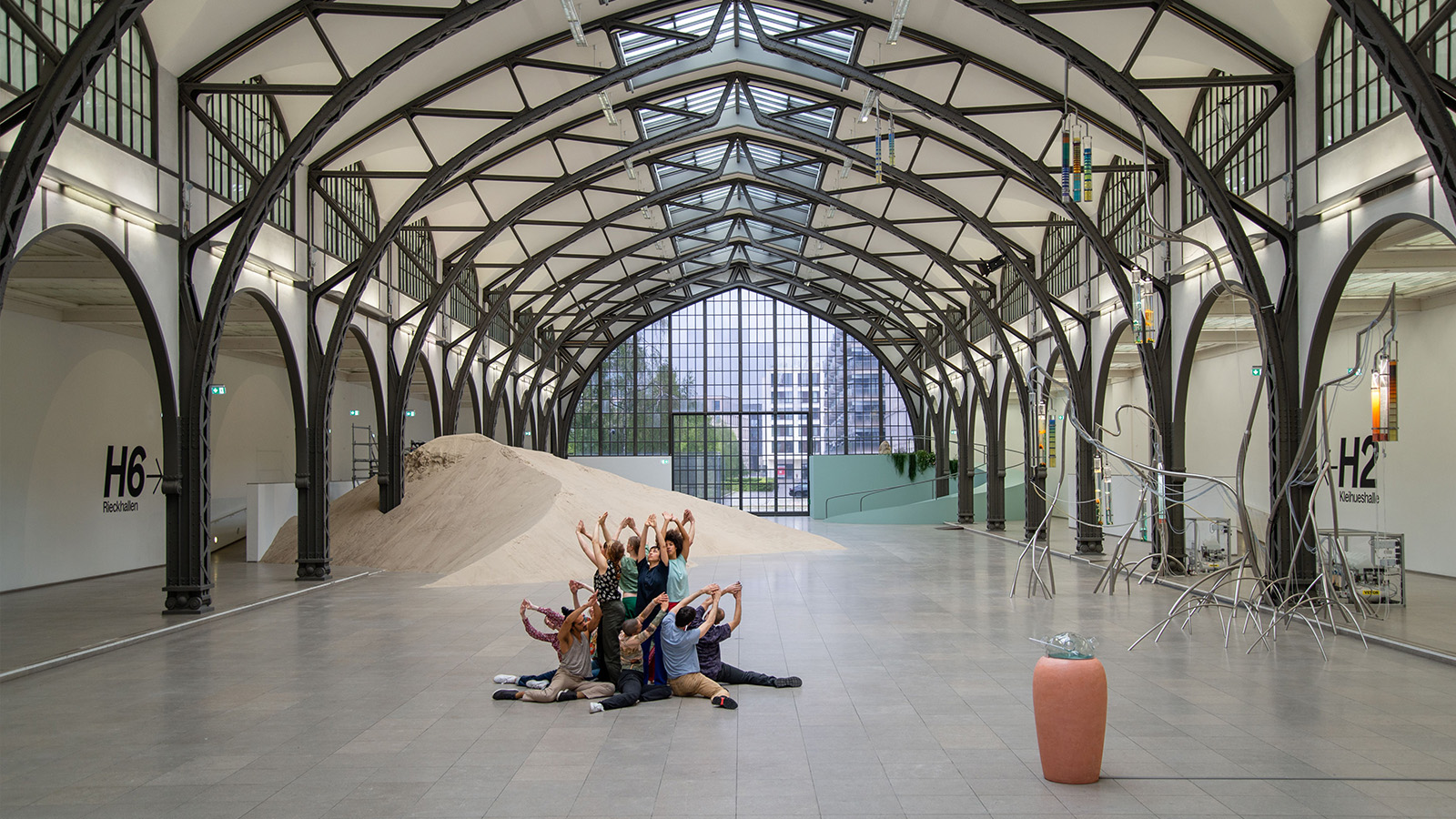 Alexandra Pirici’s action performance in Berlin is playfully abstract with a desire to address urgent political questions
Alexandra Pirici’s action performance in Berlin is playfully abstract with a desire to address urgent political questionsArtist and choreographer Alexandra Pirici transforms the historic hall of Berlin’s Hamburger Bahnhof into a live action performance and site-specific installation
By Alison Hugill
-
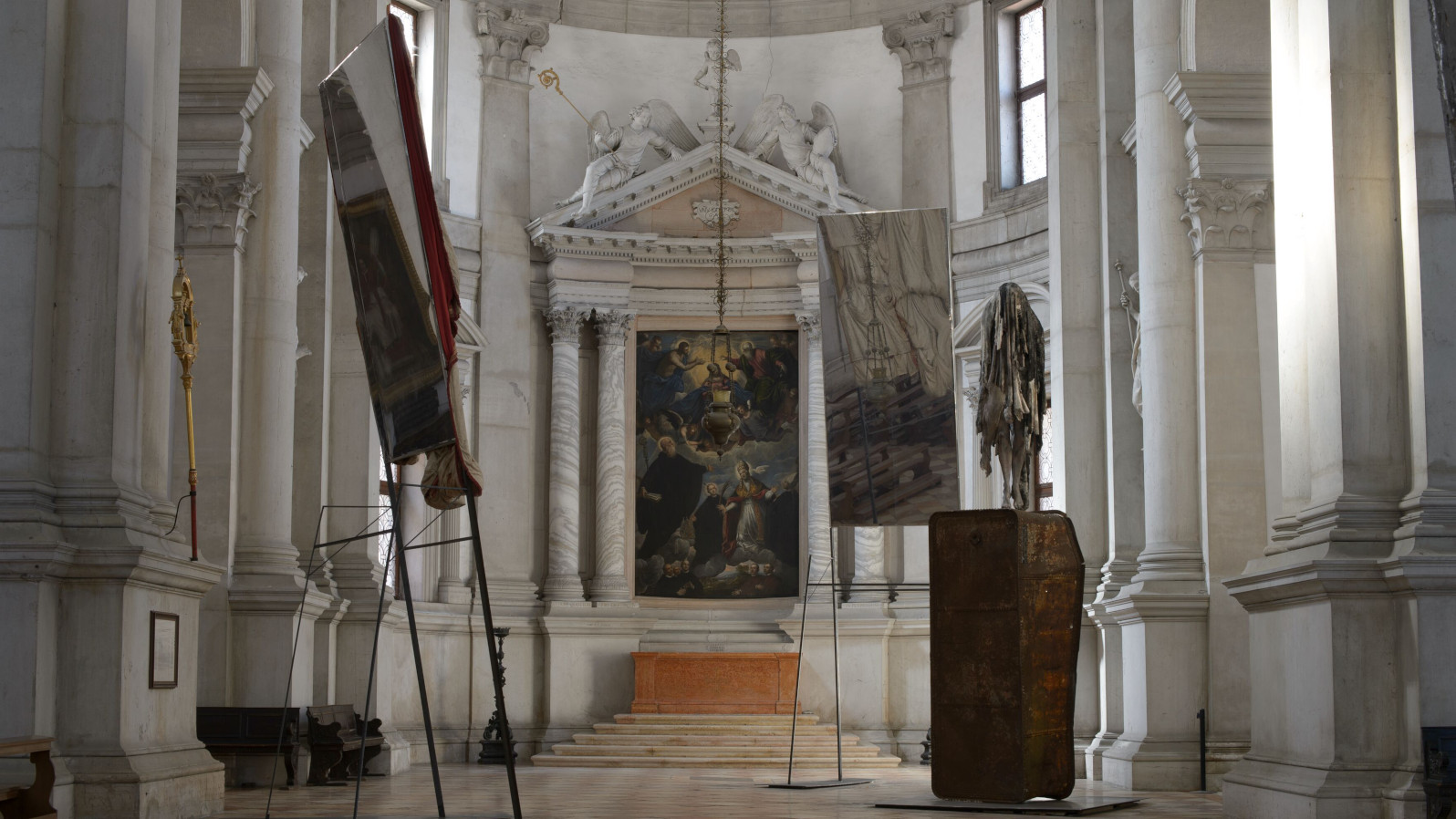 Berlinde De Bruyckere’s angels without faces touch down in Venice church
Berlinde De Bruyckere’s angels without faces touch down in Venice churchBelgian artist Berlinde De Bruyckere’s recent archangel sculptures occupy the 16th-century white marble Abbazia di San Giorgio Maggiore for the Venice Biennale 2024
By Osman Can Yerebakan
-
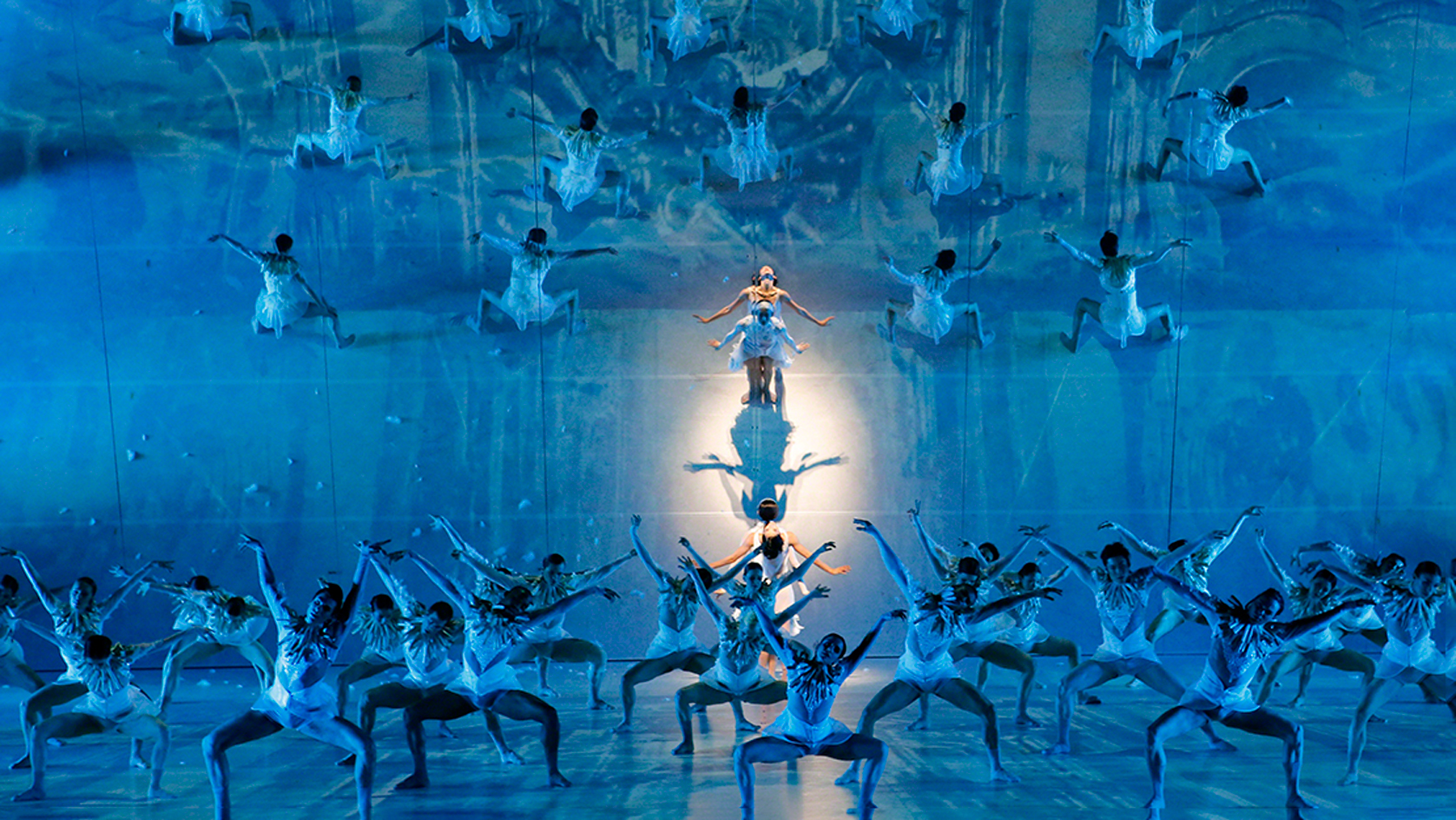 The world’s first AI ballet has arrived, and it's setting the bar high
The world’s first AI ballet has arrived, and it's setting the bar highThe first-ever AI ballet is here, directed and composed by speech artist and musician Harry Yeff (AKA Reeps100), and performed by the Leipzig Ballet
By Harriet Lloyd-Smith
-
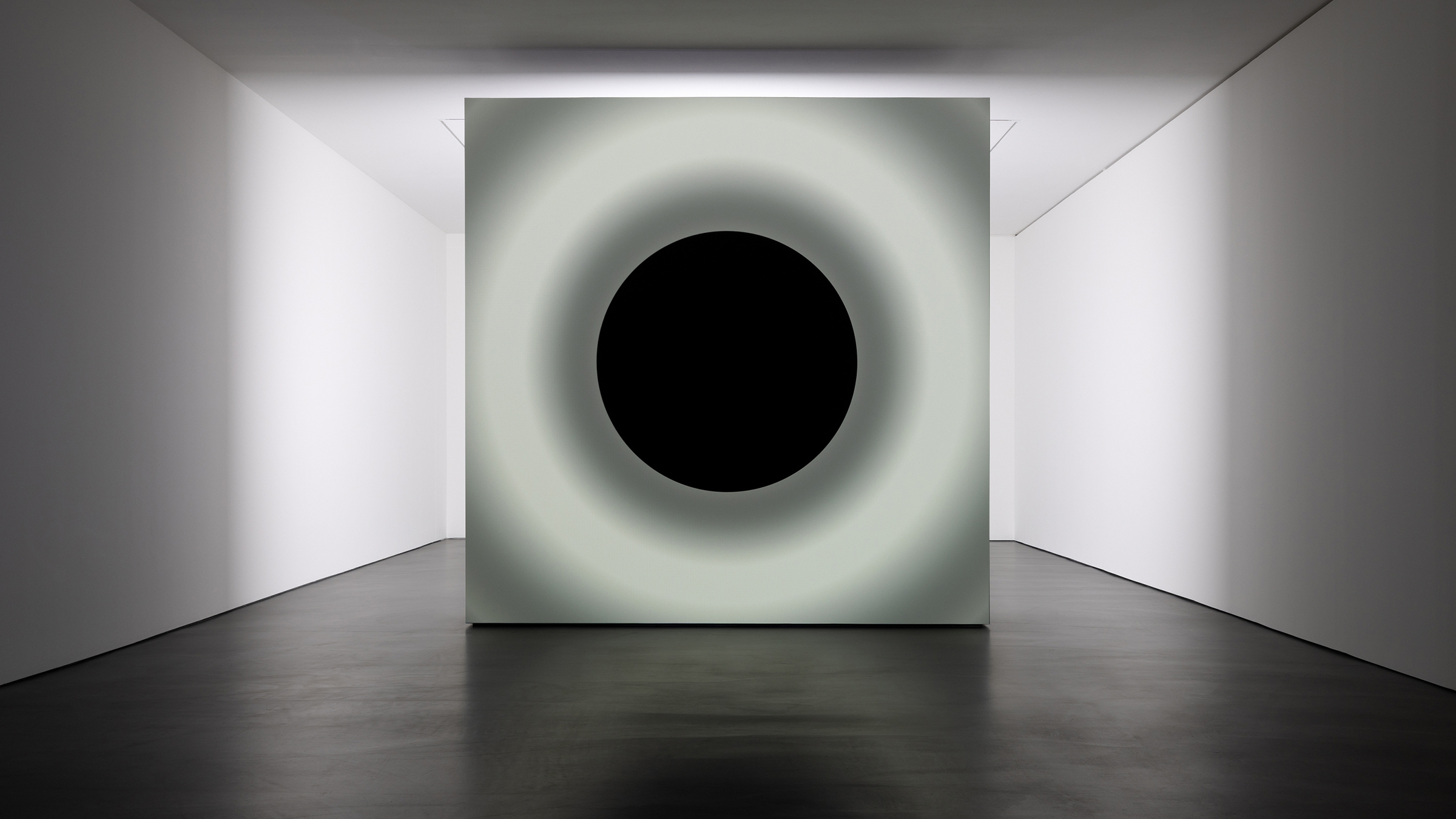 Ryoji Ikeda and Grönlund-Nisunen saturate Berlin gallery in sound, vision and visceral sensation
Ryoji Ikeda and Grönlund-Nisunen saturate Berlin gallery in sound, vision and visceral sensationAt Esther Schipper gallery Berlin, artists Ryoji Ikeda and Grönlund-Nisunen draw on the elemental forces of sound and light in a meditative and disorienting joint exhibition
By Harriet Lloyd-Smith
-
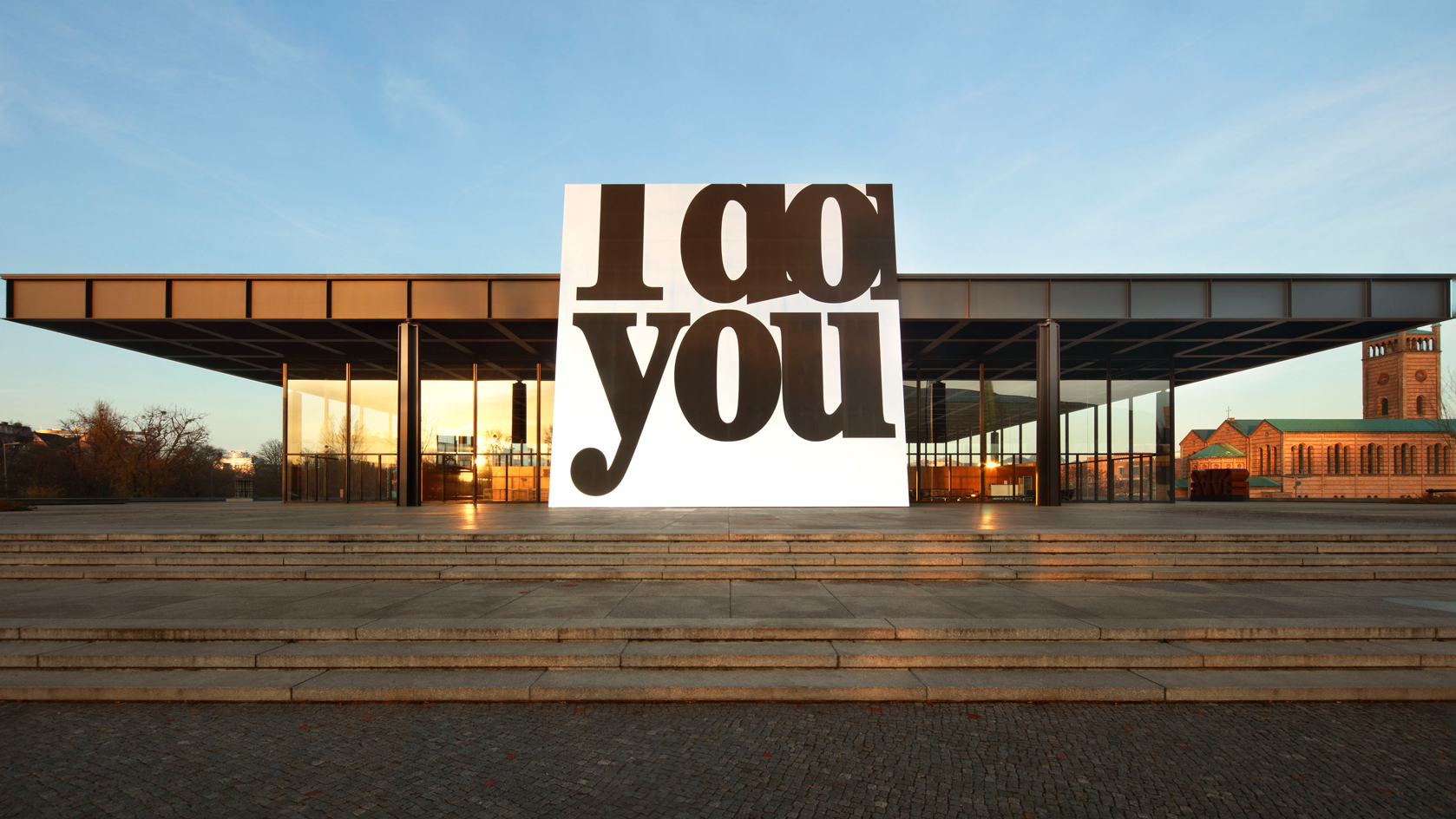 Monica Bonvicini ‘I do You’ review: bondage, mirrors and feminist takes on masculine architecture
Monica Bonvicini ‘I do You’ review: bondage, mirrors and feminist takes on masculine architectureEmily McDermott reviews Monica Bonvicini’s much-anticipated exhibition ‘I do You’ at Berlin’s Neue Nationalgalerie
By Emily McDermott